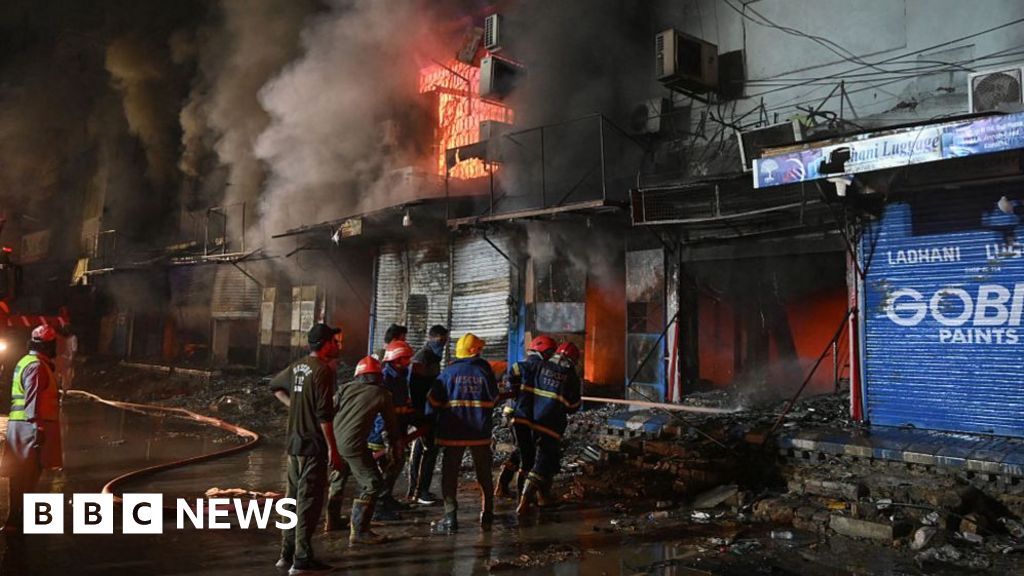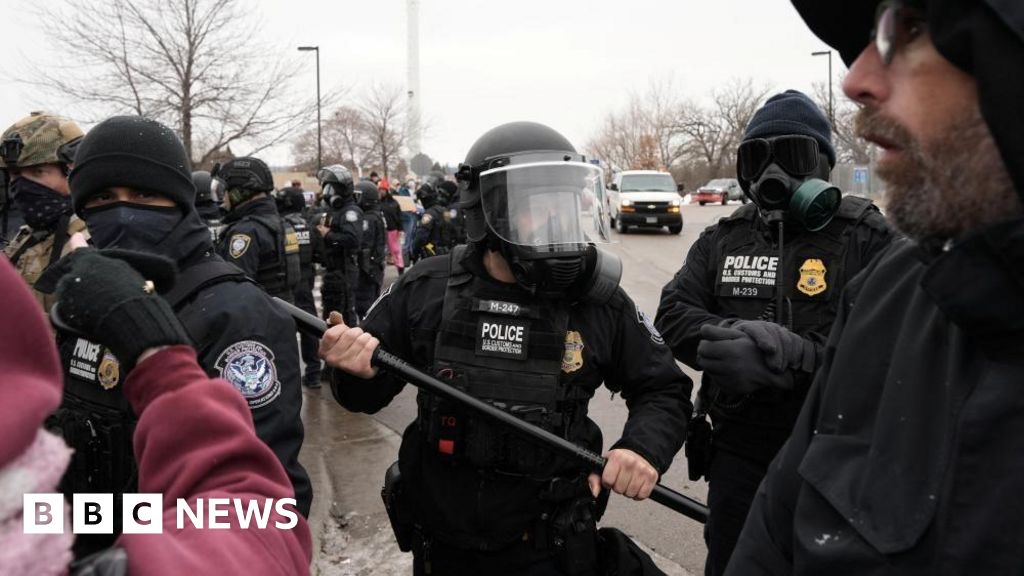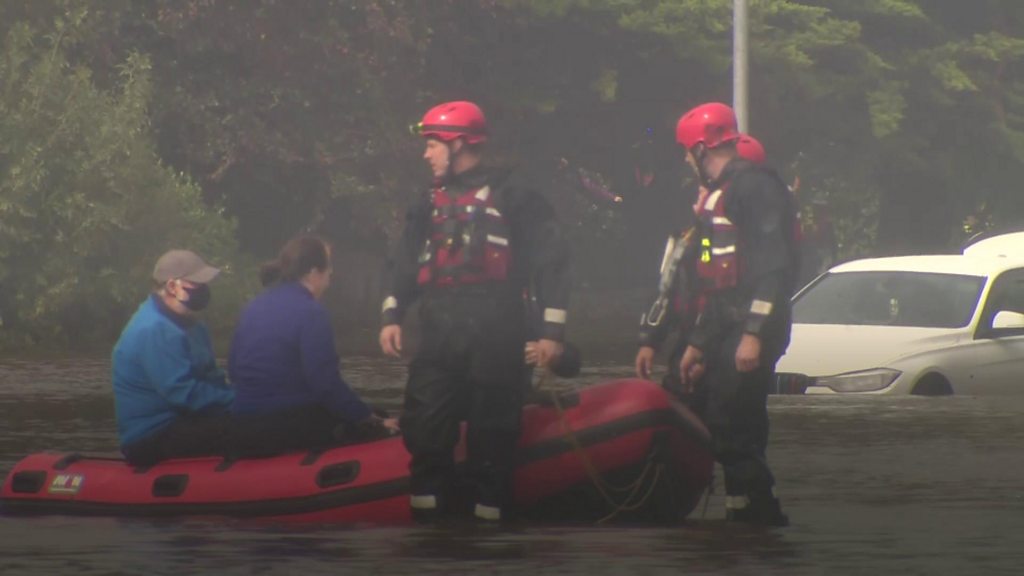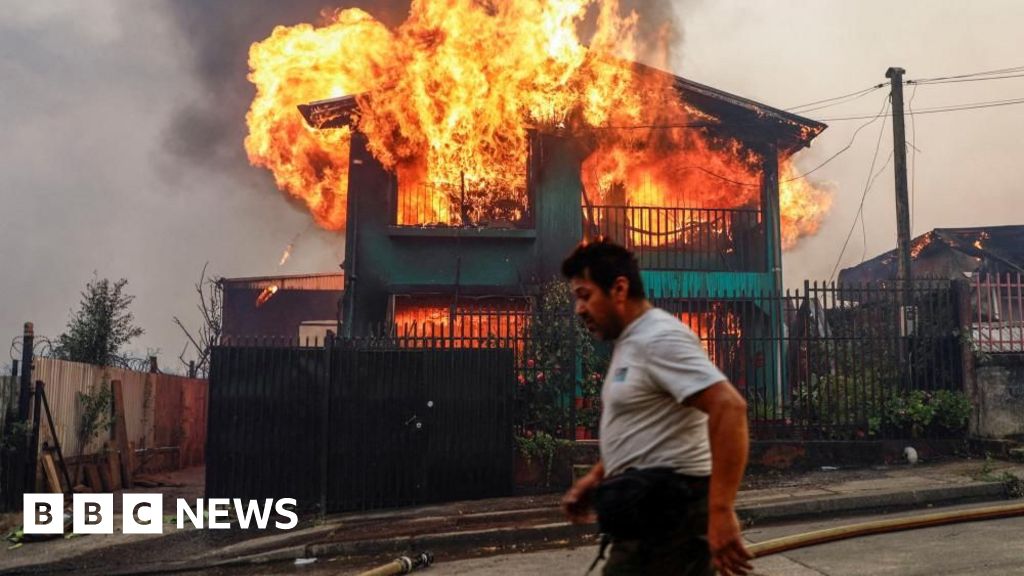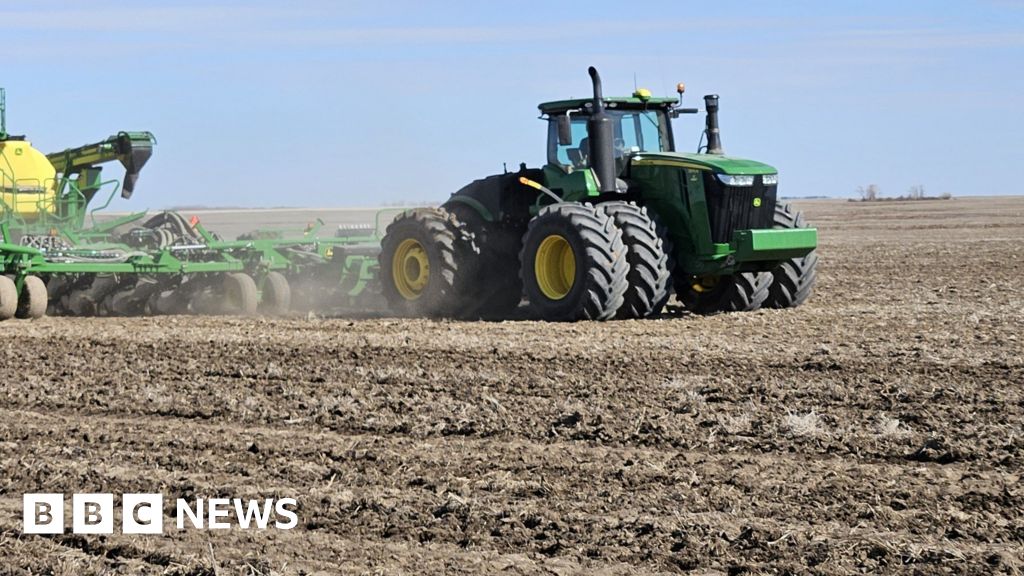Media playback is unsupported on your device
Storm Francis is lashing the UK with “unseasonably” strong gusts of nearly 80mph (129kph) and heavy rain.
Homes have been flooded, campers rescued, and road and rail travel disrupted amid the severe weather.
Police are searching the River Taff, north of Cardiff, after reports that two people, including a capsized canoeist, have gone into the water.
Warnings are in place for rain and wind across the UK, with up to 90mm (3.5in) of rain possible in Scotland.
The Met Office has issued an amber warning for very strong winds across most of Wales and central England between 14:00 BST and 22:00 BST on Tuesday.
Emergency services have urged the public to take extra care in the stormy conditions across the UK, particularly along the coast.
As of 13:00 BST, wind gusts of 78mph had been recorded at the Needles, on the Isle of Wight, and 63mph at Mumbles, on the Gower Peninsula, according to BBC Weather.
Several places in England and Wales have provisionally recorded their highest ever gusts of wind in August – including 68mph at Pembrey Sands, 52mph at Shobdon in Herefordshire, and 49mph at Pershore in Worcestershire.
The Met Office said the Environment Agency had so far recorded 86mm of rain in the Lake District and 74mm of rain in Mid Glamorgan.
Image copyright
PA Media
Waves crash near the pier in Eastbourne, East Sussex
Image copyright
Colm O Laoi
Stormy skies and choppy seas were also photographed at Brightlingsea, Essex
Image copyright
BBC/Lois Angharad
A fallen tree in Pitman Street in Cardiff
South Wales Police said it was involved in two separate water searches of the River Taff on Tuesday, including reports of a canoeist having capsized and of a person having entered the water near the Principality Stadium in Cardiff.
A woman was also rescued at the River Ely in Leckwith following reports of a person in difficulty.
Meanwhile, fire crews rescued nine people and two dogs from a flooded campsite in St Clears, Carmarthenshire, after river levels rose.
And a tractor dragged a motorhome from the mud at Llwyngwair Manor Holiday Park, Pembrokeshire, as waters rushed past.
A number of homes in Neath, Whitland, Tonyrefail and Llanelli were hit by flooding, while flash floods submerged roads across the country.

Media playback is unsupported on your device
Fire crews pumped out homes in Gorslas, Carmarthenshire
One fire crew in Carmarthenshire spent six hours pumping water from a 92-year-old man’s home, local councillor Rob James told BBC Radio 4’s World at One programme.
He added: “This weather in August doesn’t reassure us when our area is prone to flooding in winter, so the fact that we’re dealing with this now shows that climate change should be taken seriously.”
Heavy downpours have also caused disruption across Northern Ireland, where motorists were urged to seek alternative routes after the Shimna River burst its banks in County Down.
Image copyright
John Doran
Bridges were destroyed by flooding from the Shimna River in County Down
There were also road closures elsewhere in the UK and some trains were cancelled or delayed due to flooding.
Network Rail said speed restrictions were in place on several rail routes across the UK.
Avanti West Coast, Northern, TransPennine Express and Transport for Wales are currently disrupted due to weather related issues, it said.
On Tuesday, Network Rail acknowledged that it needs to better understand the risks of extreme weather following the train that derailed in Aberdeenshire earlier this month, killing three people.
The public company, which manages the UK’s railways, has asked world-renowned meteorologist Dame Julia Slingo to lead a task force which will aim to improve the company’s forecasting of extreme weather and its impact on rail infrastructure.
The company has also tasked Lord Robert Mair, a leading engineer, to spearhead a separate task force which will look at how Network Rail can improve its management of earthworks – for example embankments or when part of the land is excavated to make space for the railway.
Meanwhile, the M48 Severn Bridge is closed in both directions between junctions one and two due to strong winds in the area, Highways England said.
Image copyright
PA Media
A DFDS ferry arrives in bad weather at the Port of Dover in Kent
Three Met Office yellow weather warnings for rain and wind cover most of the UK on Tuesday, with stormy conditions expected to last until 06:00 BST on Wednesday.
Rain warnings cover Northern Ireland, southern Scotland, northern England and parts of north Wales until Wednesday morning.
Flood alerts, telling people to be prepared, have been issued for parts of the west Midlands and north west of England.
Image copyright
PA Media
Windsurfers were out at Westward Ho! in Devon, despite warnings of 70mph winds
Storm Francis comes on the back of Ellen which struck last week and caused power outages. It marks the first time the Met Office has had two named storms in August since it started the process in 2015.
Forecasters said the winds were “unusual” for August, but would have to go some way to beat the current record wind gust speed of 87mph recorded at The Needles in August 1996.
Likewise, the wettest August on record in the UK was in 1912 when 167.3mm was recorded across the country as a whole.
Between 1 and 22 August, the UK as a whole had seen some 72.7mm of rainfall – around four-fifths of the average rainfall for the month.
No new storm is currently forecast this month, meaning the next storm will begin with A rather than G, as the storm-naming calendar resets on 1 September.
Have you been affected by Storm Francis? Share your experiences by emailing [email protected].
Please include a contact number if you are willing to speak to a BBC journalist.

